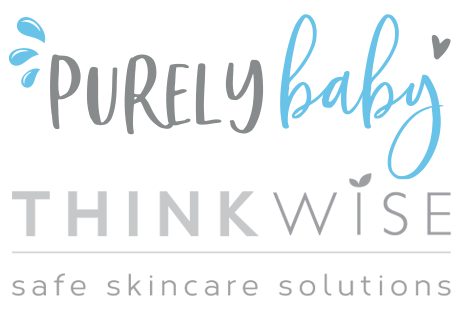Preservatives
If you’re a concerned consumer, chances are you’ve read about the potential dangers of many preservatives used in the wet wipe market. Coming from a healthcare background we know that protecting against bacteria and microorganisms is the number one priority when dealing with wet wipes.
This is why, we do not compromise on our preservatives and we refuse to wrap them up in misleading ‘feelgood’ labels. Our preservatives are naturally found in green tea and berries but, like most other naturally sounding preservatives, they are created synthetically. We believe in authenticity, openness and honesty – supporting customers to make informed decisions.
We use 99.25% purified water with 0.75% mix of the following:
0.25% Phenoxyethanol; 0.25% Benzoic Acid; 0.25% Dehydroacetic Acid
Purely Baby have access to the best chemists and testing in the world through our parent hospital supplies company. Clearly only the safest and best ingredients are used for healthcare, so why should we do anything different for our baby care market!?
Phenoxyethanol
What is it:
Phenoxyethanol can be found naturally in green tea and chicory, but the commercial ingredient is synthetically produced, creating what’s termed a “nature identical” chemical, which is pH balanced.
What it does:
Fights bacterial! Most personal care products are made with a lot of water which makes for an incredibly hospitable breeding ground for microorganisms. What’s worse – the product might smell and look fine but be swarming with bacteria or fungi that are dangerous to health. Effective preservatives are vital for ensuring safety!
Why we use it:
Phenoxyethanol has been tested on skin and eyes and proved effective at concentrations of 1% and under. It is extremely stable and does not react with other ingredients. We use Phenoxyethanol in a very low concentration (0.25%).
In reality:
Phenoxyethanol has had some negative rap recently, this is simply a case of poorly interpreted science and based on phenoxyethanol either being fed to mice or application as a stand-alone ingredient (i.e. in a concentration of 100%!!!)
Unsurprisingly these studies found harm. If mice were fed large doses of lavender oil or citrus juice, they would also suffer terrible effects!!
In real life usage, exposure is very small. That’s why it’s approved at levels up to 1%. What well intentioned worried groups have lost sight of is the fact that any natural ingredients in large doses can be toxic or cause allergic reactions! Think of wine, sugar, eggs, salt, citrus… It’s all about the final formulation.
Conclusion:
No preservative is perfect! All preservatives are meant to kill fungus, bacteria, mould and yeast so can be an irritant to the skin for some people in rare cases.
However, for now, we know that Phenoxyethanol is the safest preservative for us to use in such small concentrations and guarantees bacteria free shelf life. We are continuing to look for alternatives and testing of other preservatives continue in our UK Laboratory. So far, our tests on more ‘natural’ sounding alternatives reveal that, to be effective, they are mixed with undisclosed other preservatives or used alongside electrolysed water or need to be present in doses that cause irritation to young, sensitive skin.
Check out the following for more information and hear from customers that only use Purely Baby Aqua+ water wipes for their extremely vulnerable and sensitive babies:
Phenoxyethanol is EU (see link below) and whole foods market approved, and in a recent American study, phenoxyethanol was found to be the safest preservative available for use in a neonatal intensive care unit where preventing infections is top priority. See the full study: https://www.ncbi.nlm.nih.gov/pmc/articles/PMC4857229/
“According to the European Scientific Committee on Consumer Safety, phenoxyethanol is safe for all consumers – including children of all ages – when used as a preservative in cosmetic products at a maximum concentration of 1%” (07 October 2019). https://onlinelibrary.wiley.com/doi/full/10.1111/jdv.15944
Benzoic Acid
A number of foods contain benzoic acid. It naturally occurs in berries and other fruits such as plum. Additionally, cinnamon contains high amounts of benzoic acid. The Cosmetic Ingredient Review has determined that this ingredient is safe as used up to a concentration of 5%.
Dehydroacetic Acid
Dehydroacetic acid is a non toxic organic compound.




